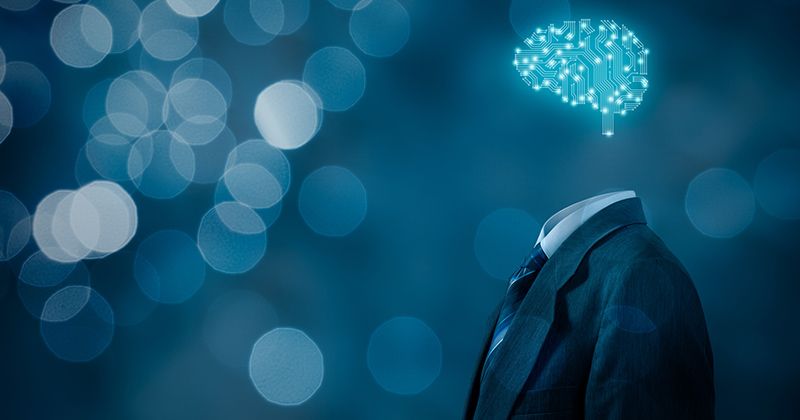Artificial Intelligence (AI) Feel Sadness ? -Let's Study about that -

Imagine, if you will, a
future where wars are fought by military robots. Drones installed with
artificial intelligence systems find and fire upon enemy targets day in and day
out. At some point, a few of these drones break down. All of their internal components
are in working order, but when engineers query the systems, they report a lack
of energy (despite full power reserves), a dislike of their day-to-day
activities, and a desire to self-destruct. If that was a human, you'd say they
were suffering from depression. But a robot? Some experts think the idea isn't
so farfetched — especially when you consider what it takes to think like a
human.
Artificial Intelligence
(AI), Barred -

The main suspect behind
depression in humans is the neurotransmitter serotonin — the lethargy, apathy,
mood swings, and sadness of the disorder are linked to a deficiency of this
particular brain chemical. While it's sometimes called the "happy
hormone," that's a pretty big oversimplification. Serotonin, like most neurotransmitters
(including the equally misunderstood chemical dopamine), actually plays a role
in a whole slew of brain functions. It helps out with sleeping, eating, motor
activity — the list goes on. But one of its starring roles is in the learning
process.
Artificial intelligence, of
course, is essentially a learning machine. Engineers feed these systems huge
swathes of data illustrating what they want the system to be able to do — for
example, pictures of dogs labeled with their breeds to teach an AI to identify an
unknown dog's breed — and the AI learns by example.
That's where serotonin comes
in, according to neuroscientist Zachary Mainen. In March, Mainen gave a talk at
an NYU symposium in which he pondered the possibility of depression in
artificial intelligence. In an interview with Science, he explained,
"Serotonin is a neuromodulator, a special kind of neurotransmitter that
quickly broadcasts its message to a large fraction of the brain ...
Computational approaches to neuroscience see other neuromodulators as other
sorts of 'control knobs' similar to those used in AI. One important 'knob' from
AI is the learning rate."
There are plenty of occasions
when increasing your learning rate would come in handy. Mainen uses traveling
abroad as an example. "In these situations, your old knowledge — your
usual model of the world — is out of date and needs to be sidelined or reworked
to adapt to the new situation." Similar occasions routinely come up for
artificial intelligence, too.
It's not that we would one
day program AI with a sort of e-serotonin — it's more that whatever it is
that's helping AI learn might be so similar to serotonin that they might
experience its side effects just like we do. It's possible that serotonin is
just a "biological quirk," Mainen says, but if it turns out to be an
essential part of the learning process in any intelligent system, then robots
could certainly get the blues.
Android Think-Over -

There's a philosophical angle
to this, too. Some say that to truly feel emotions like happiness and sadness,
you have to be self-aware and conscious. We hardly understand consciousness in
humans, let alone robots, so whether or not AI is or will ever be conscious is
an open question.
But Hutan Ashrafian, a
lecturer at College London in the UK
We're just at the beginning
stages of the artificial intelligence revolution, where our AI systems do great
things like search for exoplanets, but also hilariously clumsy things like come
up with this list of ideas for Halloween costumes. There will come a time,
however, when these questions aren't just hypothetical. And that time may come
sooner than we think.
Probably the most influential
book about AI ethics is a Philip K. Dick novel written in the 1960s. It's
called "Do Androids Dream of Electric Sheep?", but you probably know
it by the title of the movie it spawned: "Blade Runner”.
I Hope you like
this, so don’t forget to Share and Comment on it–
If you want
any additional information on my blogs then you are free to ask about that in
comment section below -
You can find me on:
instagram/> https://www.instagram.com/k_aniket.22/
<Copyright Disclaimer
Under Section 107 of the Copyright Act 1976, allowance is made for “fair use”
for purposes such as criticism, comment, news reporting, teaching, scholarship,
and research. Fair use is a use permitted by copyright statue that might
otherwise in infringing. Non-profit, educational or personal use tips the
balance in favor of fair use.>
Comments
Post a Comment